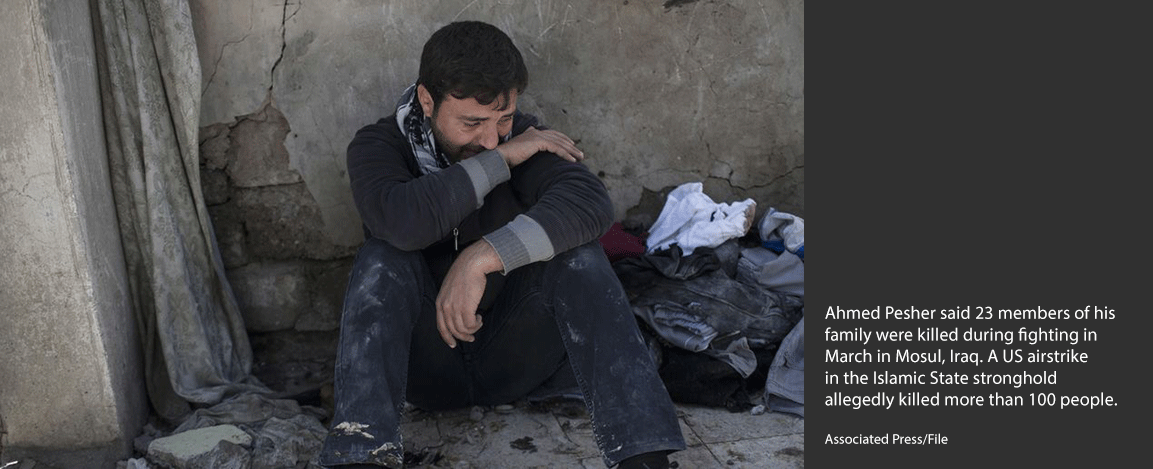In this episode of the Washington Times History as it happens, John Tirman explains the reasons why Americans have mostly ignored, downplayed or even justified the deaths of civilians in the nation’s post-WWII conflicts, starting with the Korean War, when the US military carpet bombed North Korea, causing catastrophic damage, up to and including the wars in Afghanistan and Iraq.
John Tirman is the executive director of and a principal research scientist at the Center for International Studies.
The civilian toll of America’s endless wars in the Greater Middle East is receiving fresh scrutiny after congressionally mandated reports and some investigative journalism spurred Defense Secretary Lloyd Austin to order the Pentagon to improve its protections for the ordinary people who have died by the thousands in errant U.S. airstrikes since September 11, 2001.
Mr. Austin wants the military to address the systemic weaknesses in the targeting of enemy fighters that lead to civilian deaths as well as the failure to properly investigate and account for them. A series of reports by The New York Times documented several cases in which military officials covered up the unintentional slaughter of civilians.
These tragedies, which are only sporadically noticed by ordinary Americans in the ongoing global war on terrorism, raise a deeper question: Why does the public seem so indifferent to the deaths of others?
In this episode of History As It Happens, historian John Tirman explains the reasons why Americans have mostly ignored, downplayed or even justified the deaths of civilians in the nation’s post-WWII conflicts, starting with the Korean War, when the U.S. military carpet bombed North Korea, causing catastrophic damage, up to and including the wars in Afghanistan and Iraq.
“The indifference comes from not wanting to deal with the actual consequences of U.S. actions. That is, there is a pattern of public reaction to these wars of, first, great enthusiasm about the U.S. intervention, believing we were there for good reasons,” said Mr. Tirman, an expert on international studies at the Massachusetts Institute of Technology and the author of “The Deaths of Others: The Fate of Civilians in America’s Wars.”
“There was a lot of enthusiasm, but it dissipated rather quickly, even more so in recent wars, as things began to go awry militarily. People began to feel it was a mess and they wanted to turn away from the complexity of it, the bloodshed and the responsibility for the destructiveness of the wars,” Mr. Tirman said.
Unlike in Korea, Vietnam and Cambodia, the U.S. now subscribes to the notion of precision strikes that obviate the need for large-scale land invasions or carpet bombing in order to, for instance, assassinate the individual leaders of terrorist organizations hiding in lawless parts of Syria or Afghanistan.
But the illusion of precision and expected failures in judgment in the “fog of war” has led to dozens of errant airstrikes, provoking an intense anti-American backlash among the populace.
To listen to the full interview with John Tirman, download this episode of History as it happens.




